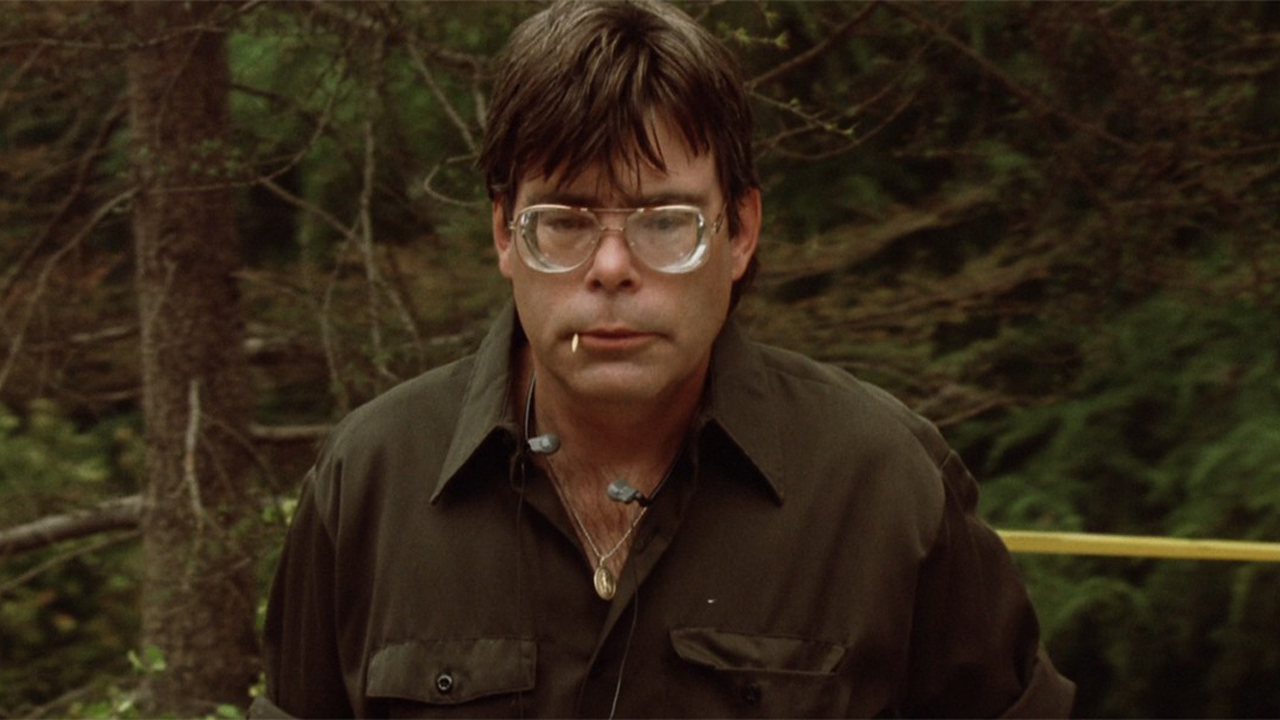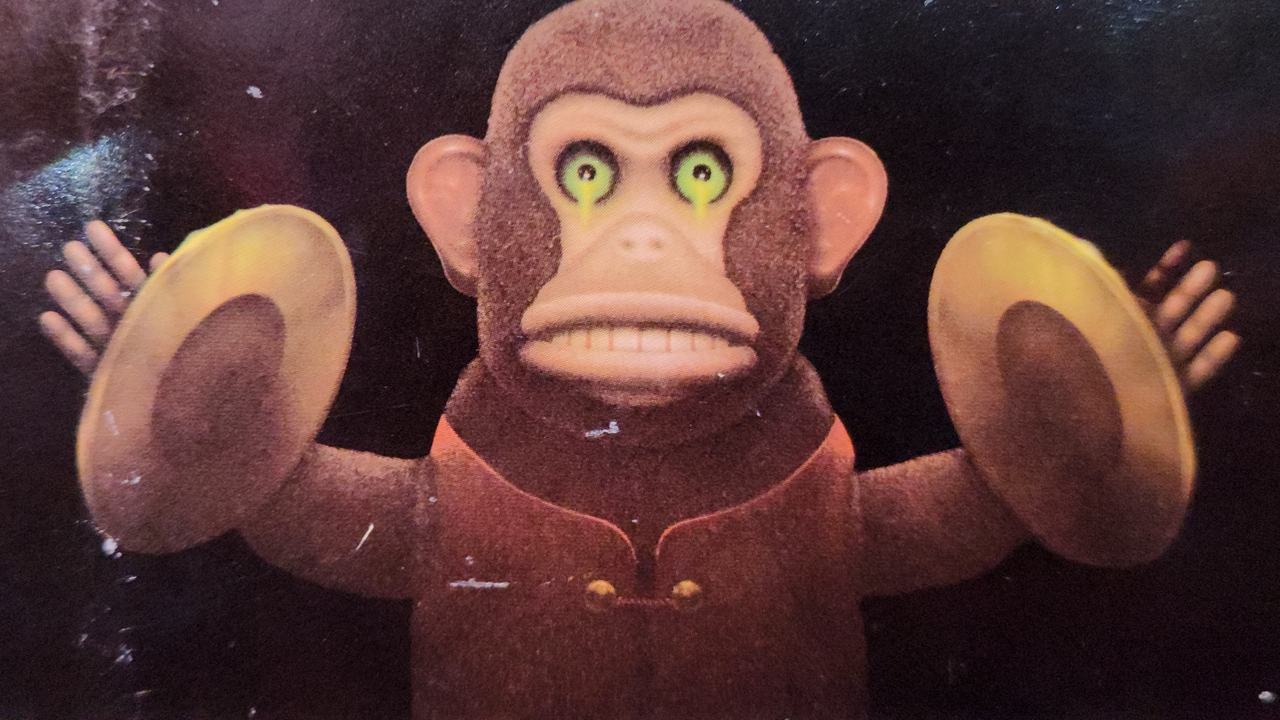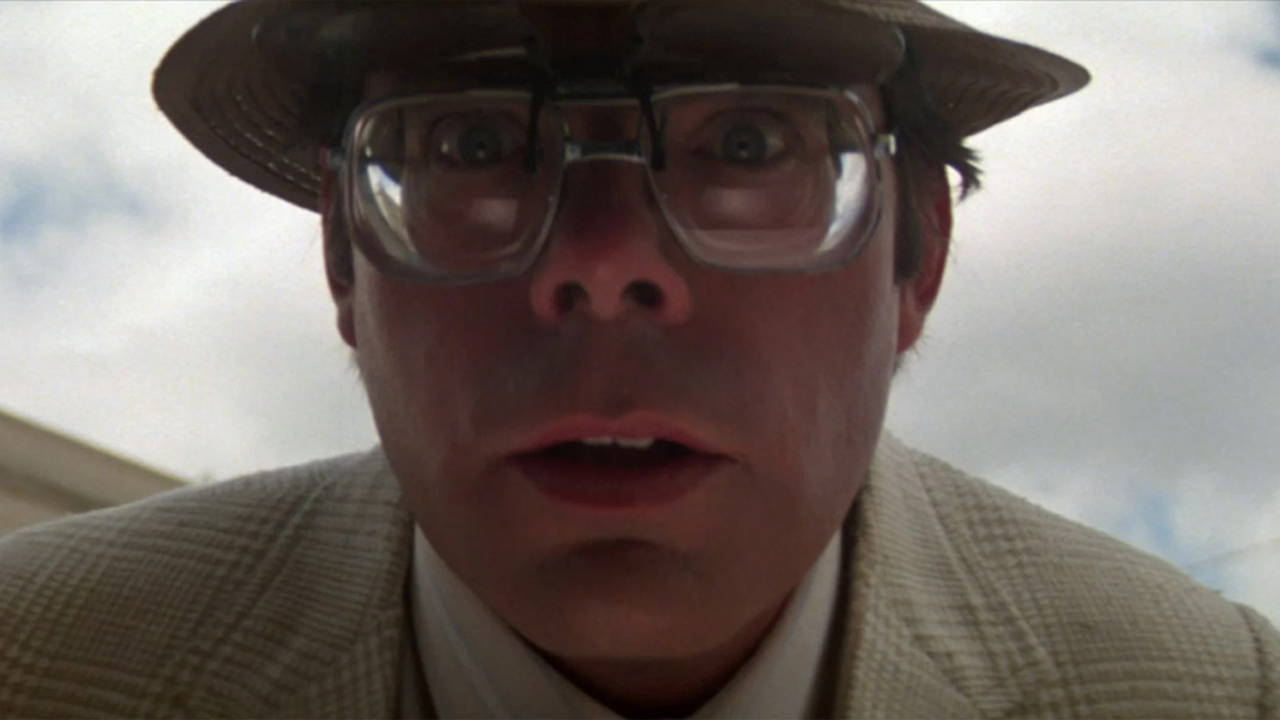Stephen King Explains Why One Of His New Short Stories Took Him Nearly A Half-Century To Finish
Plus an update about The Monkey.

If you consider yourself one of Stephen King’s Constant Readers, I surely don’t have to tell you why this week is special. One has to go all the way back to 1976 to find a calendar year without the release of a single King book, and his 2024 tome just arrived in stores everywhere on Tuesday. Whether you like hardcovers, eBooks or audiobooks, the new collection You Like It Darker is now available for your immediate consumption.
Appropriately, this week’s edition of The King Beat is in large part a celebration of the new omnibus – but that’s not all. Fans will also be excited to learn the latest news about director Osgood Perkins’ upcoming adaptation The Monkey and acquire some wisdom via advice from the King of Horror. Let’s dig in!

“The Answer Man” Is A Brand New Short Story In Stephen King’s Latest Collection, But He First Started Writing It In The 1970s
Given the scale of Stephen King’s body of work in the last 50 years, it might be hard to believe that the man ever writes anything that hits a creative dead end and doesn’t get finished… but that’s perhaps forgetting that King is human. His most brilliant stories have a tendency to become best-selling novels, but like any writer, he pursues some ideas that don’t develop properly and ultimately peter out. Most of these aborted projects end up being filed away and forgotten – but “The Answer Man,” a new tale featured in You Like It Darker, is an exception, as it was dead and lost for decades before being recently resurrected and completed.
Promoting his newest collection, Stephen King recently spoke with NPR’s Mary Louise Kelly, and their conversation began with a discussion of “The Answer Man,” which is the twelfth and final story in the new book. In the afterword of You Like It Darker, King notes that he started it when it was 30 and finished it was 75, and he explained in the interview why it took so long to get done:
Well, I lost it. What happens with me is I will write stories and they usually get done, and they don't always get done. And the ones that don't get done go in a drawer, and I forget all about them. And about five years ago, these people started to collect all the stuff that was finished and all this stuff that was unfinished and put it in an archive.
According to King, the collection process for the archive dug into just about every nook and cranny of his work space – “desk drawers, wastebaskets underneath the desk, every place” – and it was during this sweep that John Leonard, the author’s nephew found six pages of a story called “The Answer Man.” Leonard shared his interest in the work with King, and the latter discovered some fresh inspiration”
My nephew John Leonard found this particular story, which was written in the U.N. Plaza Hotel back in the '70s, I think. And he said, ‘You know, this is pretty good. You really ought to finish this.’ And I read it and I said, "You know, I think I know how to finish it now.’ So I did. And I don’t think I ever decided it was a bad story. I just left that particular hotel and forgot about it.
It should be noted that “The Answer Man” isn’t unique within the Stephen King canon as a resurrected story. For example, he originally wrote 75 pages of what would become Under The Dome in the mid-1970s, but that manuscript was lost, and he brought the idea back with new ideas 30 years later. Similarly, he first conceptualized 11.22.63 in 1972, but the trauma of the John F. Kennedy assassination was too fresh in his mind, and he didn’t have the ability to take on the amount of research required for the book due to his employment as a full-time teacher.
What does make “The Answer Man” special, however, is that Stephen King found himself communicating with himself in the past while writing it, or as he puts it in the afterword, “calling into a canyon of time and listening for the echo to come back.” Playing out in three acts, the story follows a young man who is out driving and contemplating his career as a lawyer – deciding whether to join his parents’ established firm in Boston or carve out his own path. Amid this contemplation, he sees a man sitting at a table on the side of the road under an umbrella, and he is offered a deal: pay $25 and have three of his most pressing questions answered. But does anyone really want firm answers about their own future?
CINEMABLEND NEWSLETTER
Your Daily Blend of Entertainment News
King explained in the NPR interview that finishing “The Answer Man” was in part an exercise in communicating with his 30-year-old self, saying,
When I was a young man, I had a young man's ideas about The Answer Man, and I could see the course of this story. But now, as a man who has reached, let us say, a certain age, I'm forced to write from experience and just an idea of what it might be like to be an old man. So yeah, it felt to me like yelling and then waiting for the echo to come back all these years later.
It really says something about Stephen King as a writer that a long-forgotten idea from a half-century ago can be brought back and crafted into a gem.

The Monkey Has Landed A Distribution Deal At The Cannes Market And Is Planning A 2025 Release
Two weeks ago, I noted here in The King Beat that Francis Lawrence’s The Long Walk was launching sales at the Cannes Film Market, and while we sadly haven’t heard any update about that project yet, the event has produced good news for another upcoming Stephen King adaptation – namely Osgood Perkins’ The Monkey. It was previously reported in March that the new movie based on the short story of the same name had secretly completed production, and it was revealed this past week that the project has been picked up for domestic distribution by Neon.
Deadline provided the scoop on The Monkey this past Saturday, noting that Neon only acquired the project following a “a multi-buyer tug of war” and that the deal is in the “high seven figures.” As previously reported, the movie stars Theo James as a pair of identical twin brothers who are forced to reunite when they discover that a sinister toy from their childhood – a cursed cymbal-banging monkey that seems to cause death whenever it turns on – has resurfaced and needs to be destroyed forever. The short story on which it is based is featured in the 1985 collection Skeleton Crew, and the film co-stars Tatiana Maslany, Elijah Wood, Christian Convery, Colin O’Brien, Rohan Campbell, and Sarah Levy.
Neon seems like it’s probably a good fit for The Monkey given that the distributor is all set to release Osgood Perkins’ next film, Longlegs, this July. That being said, the unfortunate part of this news is that Neon apparently doesn’t want to release two of Perkins’ movies in the same calendar year. Per the trade report, a theatrical release is being planned for 2025.
Because of this distribution strategy, it may be a minute before we actually get a trailer for The Monkey – but we’ll hopefully hear more about the project very soon.

Stephen King Shares Some Wonderful Advice In Esquire’s What I’ve Learned Interview Series
Stephen King is a font of great advice – and not just for aspiring writers. The man has lived an extraordinary life, full of incredible success and battled demons, and he’s admirable for not just his talent but also his dedication to his family and charity. The man knows quite a lot, and this week, he shared some of his knowledge as part of Esquire’s “What I’ve Learned” interview series.
The piece touches on a lot of different topics, including fame, reading reviews, and marriage – but, as you would expect, the number one subject is writing. There is some terrific advice for those in the profession of putting words on a page, such as this message about self-importance:
You can’t think of writing as an adult pursuit or anything that’s important. That’s a good way to turn into a gasbag and start to think that you’re really fucking important. You’re not. You just do your work.
Stephen King also explains the importance of having a dedicated work ethic and why it’s important to keep pegging away every day. If you slow down, your perspective on what you’re working on is apt to change – or as he puts it,
I have to work every day because I have to keep it fresh. If you take a few days off, it all starts to look kind of tacky—like an old campaign poster that’s running in the rain.
Of course, failure happens. When it does, you have to be comfortable moving on:
It doesn’t always work. I’ve got stories that just ram up against a brick wall. They’re in my right desk drawer. I don’t look in there.
Admittedly, that last bit of advice is funny given the aforementioned development of “The Answer Man.” Perhaps he should do a bit more digging in that drawer once in a while.

Recommendation Of The Week: “Two Talented Bastids”
I decided not to get too fancy with my Recommendation Of The Week for this edition of The King Beat. If you pick up a copy of You Like It Darker and flip past the title page and the dedications, the first story you’ll find is the tale “Two Talented Bastids” Makes sense to start at the start, right?
The story is told from the perspective of a middle-aged man named Mark Carmody, who has spent the majority of his life aware of a certain mystery surrounding his father, Laird Carmody, a famous author, and Laird’s best friend, Dave “Butch” LaVerdiere, a beloved artist. What makes Laird and Dave so strange is that they both came from humble beginnings and didn’t find success in their respective fields until reaching middle age. It’s only after Laird’s death that Mark starts to uncover the truth – which begins with the contents of a manila envelope in a locked desk drawer.
That wraps up this week’s edition of The King Beat, but be sure to head back here to CinemaBlend next Thursday for my latest column. Meanwhile, you can learn about the full history of Stephen King’s stories in film and television with my series Adapting Stephen King.

Eric Eisenberg is the Assistant Managing Editor at CinemaBlend. After graduating Boston University and earning a bachelor’s degree in journalism, he took a part-time job as a staff writer for CinemaBlend, and after six months was offered the opportunity to move to Los Angeles and take on a newly created West Coast Editor position. Over a decade later, he's continuing to advance his interests and expertise. In addition to conducting filmmaker interviews and contributing to the news and feature content of the site, Eric also oversees the Movie Reviews section, writes the the weekend box office report (published Sundays), and is the site's resident Stephen King expert. He has two King-related columns.









